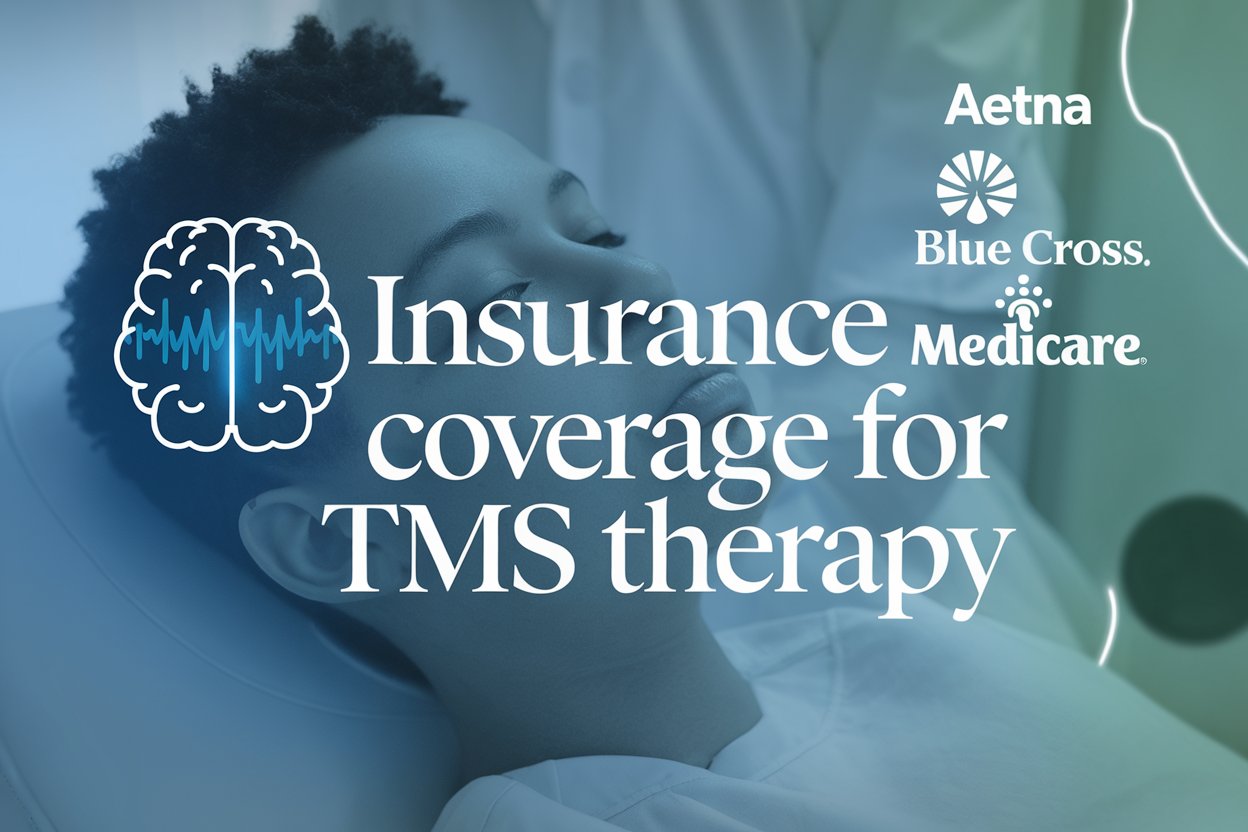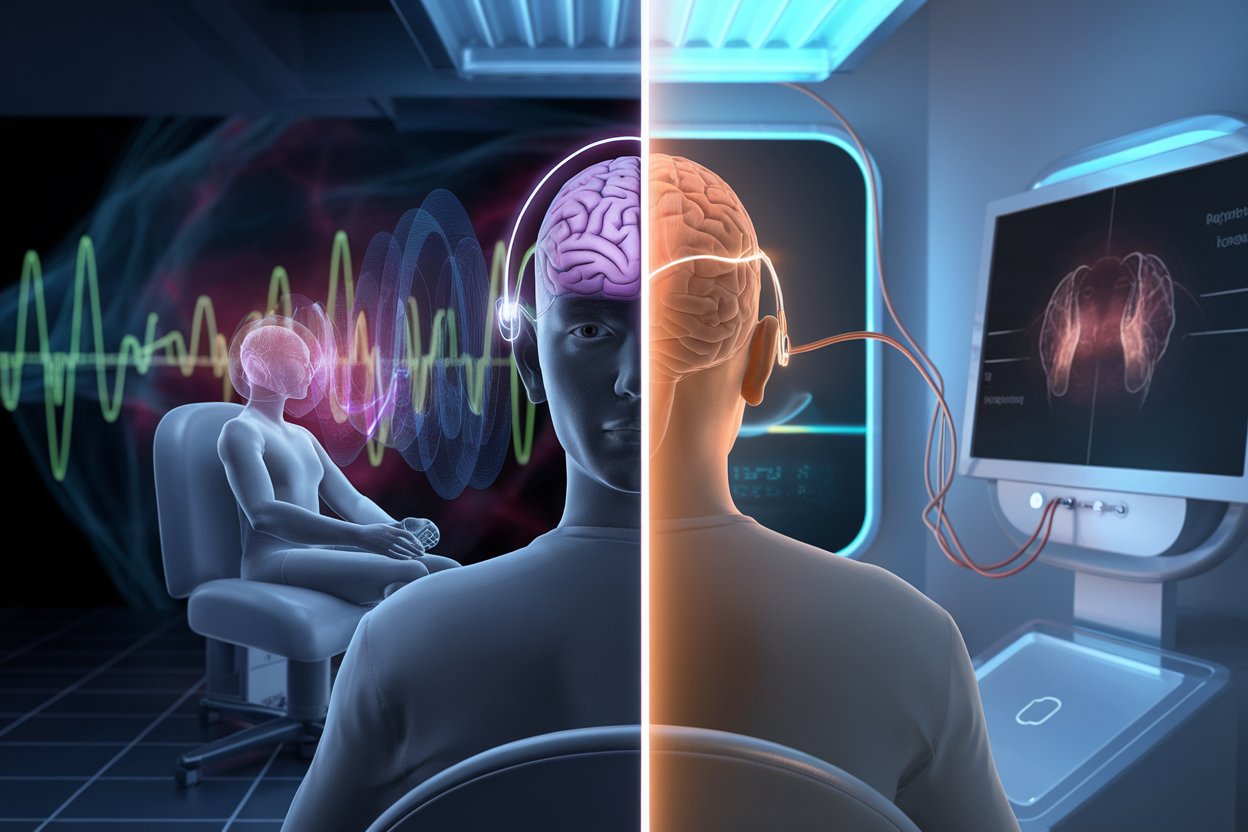Transcranial Magnetic Stimulation (TMS) therapy is a non-invasive treatment for depression, obsessive-compulsive disorder (OCD), and other mental health conditions. It offers a medication-free approach for individuals who haven’t found relief through traditional treatments like medication or therapy. But what are the side effects of TMS therapy? Let’s delve into a comprehensive overview.
TMS therapy uses precisely targeted magnetic pulses, similar to those used in an MRI machine, to stimulate specific areas of the brain associated with mood regulation. It’s an outpatient procedure, meaning no hospitalization is required, and patients can typically resume their daily activities immediately after each session.
While TMS is generally considered safe and effective, like any medical treatment, it can be associated with some side effects. Fortunately, the vast majority of these side effects are mild, temporary, and resolve on their own shortly after treatment.
Common Side Effects of TMS Therapy
TMS therapy is generally well-tolerated, but some mild side effects can occur. These often include headaches, scalp discomfort, and lightheadedness, which typically resolve quickly.
Headache
Headaches are the most common side effect of TMS therapy. They are usually mild to moderate in intensity and can be treated with over-the-counter pain relievers such as acetaminophen (Tylenol) or ibuprofen (Advil, Motrin). The headaches usually go away on their own within a few hours.
Scalp Discomfort
Some people may experience scalp discomfort or pain at the site where the magnetic coil is placed on the scalp. This sensation is usually described as a tapping or knocking feeling. It is typically mild and goes away on its own within a few minutes.
Lightheadedness
A small number of people may feel lightheaded or dizzy immediately following a TMS session. This sensation usually subsides quickly with rest.
Other Side Effects
In rare cases, TMS therapy can cause more serious side effects, such as seizures or hearing loss. However, these side effects are very rare.
Overall, TMS therapy is a safe and well-tolerated treatment. The most common side effects are mild and go away quickly. Most people can continue their normal activities after their TMS session.
Less Common Side Effects of TMS Therapy
While TMS therapy is generally safe, some less common side effects can occur. These are rare but important to be aware of:
- Muscle Twitching: Some individuals might experience minor twitching of facial muscles during the TMS session. This is temporary and usually resolves quickly after the session ends.
- Seizures: Although extremely rare, the most serious potential side effect is a seizure. The risk is very low, estimated to be around 0.01% (less than 1 in 10,000 treatments). Individuals with a history of epilepsy or seizures are generally not candidates for TMS therapy. Careful screening by a qualified medical professional is crucial to minimize this risk.
- Hearing Problems: The TMS device produces a clicking sound during operation, which can potentially affect hearing if proper precautions are not taken. Patients are routinely provided with earplugs or other hearing protection to minimize this risk. With proper ear protection, the risk of hearing problems is minimal.
Are the Side Effects of TMS Therapy Dangerous?
The side effects of TMS therapy are generally mild and temporary, posing minimal risk. While some discomfort is possible, serious adverse events are rare. Doctors and trained medical professionals closely monitor patients throughout the TMS process to ensure safety and manage any potential side effects effectively. The benefits of TMS therapy often significantly outweigh the minor and transient side effects.
Memory Loss and TMS Therapy
A common concern about brain stimulation therapies is the potential for memory loss. Fortunately, TMS therapy does not typically cause memory problems. Unlike electroconvulsive therapy (ECT), which can sometimes lead to temporary memory difficulties, TMS targets specific brain regions involved in mood regulation without significantly impacting memory or other cognitive functions. Studies have consistently shown that TMS does not result in noticeable memory decline.
Comparing TMS Therapy to Depression Medications
When exploring treatments for depression, understanding the side effects and effectiveness of various options is crucial. Transcranial Magnetic Stimulation (TMS) therapy and traditional depression medications are two commonly considered approaches. Here’s a detailed comparison to help you make an informed decision.
Common Side Effects of Medications:
Depression medications, like SSRIs and SNRIs, often cause side effects such as weight gain, sleep disturbances, dry mouth, and sexual dysfunction. These effects can impact daily life and may require additional management. Despite their effectiveness for many, these challenges often prompt individuals to explore alternative treatments like TMS therapy for a more tolerable experience.
Rare Side Effects of Medications:
In rare cases, antidepressants can lead to serious complications. Increased suicidal thoughts, particularly in younger patients, are a significant concern. Other risks include potential liver damage from prolonged use or high doses, and severe allergic reactions like rashes or swelling. These issues highlight the importance of monitoring and personalized care when using medication for depression.
TMS Therapy:
TMS therapy is known for its mild side effects, making it a preferred option for many. The most common complaints include mild headaches and scalp discomfort, both of which are temporary and manageable. This targeted treatment avoids systemic side effects, offering individuals a more tolerable path to relief from depression symptoms.
Why Choose TMS Therapy?
TMS therapy offers a different option for treating depression. It can be a good choice for people who do not respond well to medications or who want to avoid the side effects of drugs. Here are some reasons to consider TMS therapy:
- Non-invasive: TMS therapy does not involve surgery or taking pills.
- Fewer Side Effects: The side effects are generally mild and short-lived.
- Effective: Many people find relief from their depression symptoms with TMS therapy.
FAQ: Understanding TMS Therapy
What are the negative effects of TMS?
The negative effects of TMS therapy are usually mild and short-lived. Common side effects include headaches, scalp discomfort, and lightheadedness. Rarely, individuals may experience muscle twitching or hearing problems, which typically resolve quickly after the treatment.
What is the controversy with TMS?
The controversy surrounding TMS often stems from debates about its effectiveness and cost. While many patients benefit, critics argue that more research is needed to fully understand its mechanisms and to identify the most suitable candidates for the therapy.
Can TMS therapy go wrong?
TMS therapy is generally safe, but risks exist as with any medical procedure. The most serious risk, though extremely rare, is a seizure, occurring in fewer than 1 in 10,000 sessions. Proper screening reduces these risks significantly.
Can TMS make anxiety worse?
While TMS is primarily for depression, it can influence anxiety. Some patients report increased anxiety during early sessions, but this typically diminishes as treatment progresses. Always discuss anxiety concerns with your doctor before and during therapy.
Who should not do TMS?
Individuals with metal implants in their heads (excluding dental fillings), a history of seizures, or specific brain injuries should avoid TMS therapy. Consulting a doctor is essential to determine whether TMS is a safe option based on medical history.
Who should not get TMS?
People with implanted medical devices, such as pacemakers, or metal objects in their heads, should not undergo TMS. Those with seizure disorders or epilepsy should also avoid it unless explicitly recommended by a medical professional.
Can TMS cause personality changes?
TMS therapy does not typically result in personality changes. It targets brain areas related to mood regulation without altering personality. If you notice unexpected changes, consult your doctor promptly for evaluation and possible adjustments to your treatment.
Can TMS cause anger?
TMS therapy does not usually cause anger, but mood changes can occur as it influences brain function. If irritability or anger arises during treatment, it’s crucial to communicate this with your healthcare provider to address any concerns.
Are there long-term negative effects of TMS?
There is no evidence of long-term negative effects from TMS therapy. Side effects are generally mild and temporary. Long-term studies confirm that TMS is a safe and effective treatment for depression and related conditions in most individuals.
Take the First Step Towards a Brighter Future
Are you ready to improve your mental health and well-being? Discover the benefits of TMS therapy and see if it’s the right fit for you. Find out if you qualify for a free EEG and psychiatric evaluation. Contact American TMS Clinics today and take the first step towards a brighter future!





